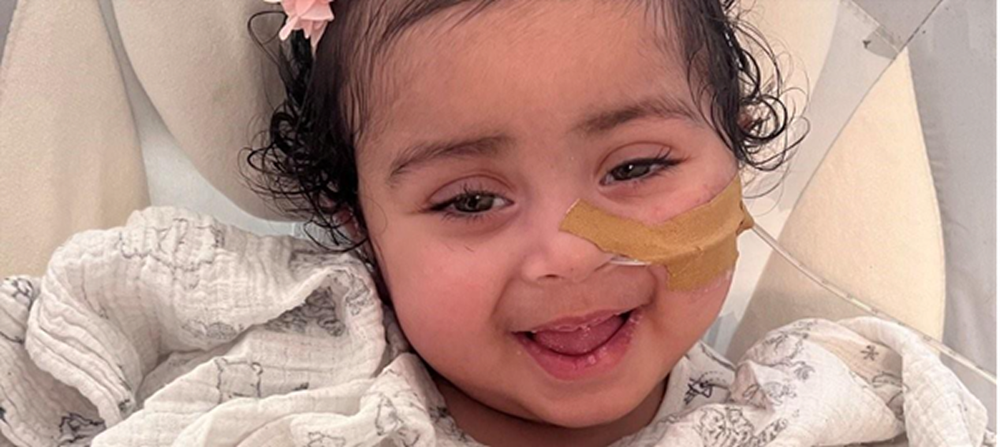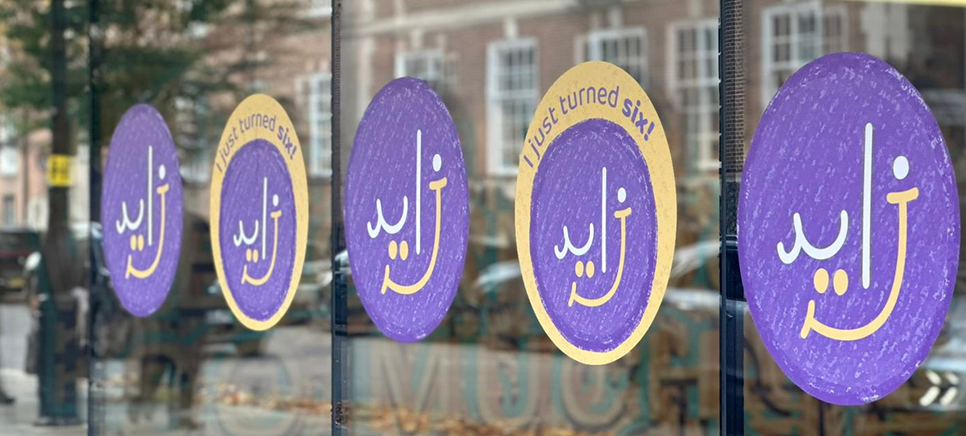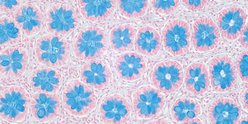Six years of groundbreaking research and transforming lives at the Zayed Centre for Research
27 Nov 2025, 1:34 p.m.
This year marks the sixth anniversary of the Zayed Centre for Research into Rare Disease in Children (ZCR).
Since opening in 2019, the centre has become a beacon of hope for children and families facing the rarest and most complex conditions. It unites world-leading clinicians, scientists and manufacturing experts under one roof – accelerating the journey from discovery to treatment.
Now in its sixth year, the Centre is celebrating another extraordinary year of innovation.
Our latest impact report showcases how groundbreaking science and compassionate care at the ZCR are transforming children’s futures here in the UK and around the world.
To mark this milestone, we reflect on some of the centre’s most exciting highlights since 2024.
ZCR impact highlights 2024/25: A timeline
April 2024: Professor Claire Booth pilots plan to make gene therapies more available globally
One of the year’s standout developments came in April 2024, when Great Ormond Street Hospital (GOSH), supported by Great Ormond Street Hospital Charity (GOSH Charity) and LifeArc, announced plans to hold the licence for a gene therapy – a UK first.
Led by Professor Claire Booth at the ZCR, a pilot project is exploring how a pioneering new model could make proven treatments for rare diseases available to more children who need them.
“It’s simply not good enough that we have treatments that we know work, but we can’t get them to our patients,” says Professor Booth. “We must do something radical to tackle this.”
May 2024: ZCR-based Professor recognised in Time100 Health List
The year’s other highlights included Professor Paolo De Coppi’s inclusion on TIME’s 100 Health list.
This was in recognition of his pioneering research into regenerative and prenatal medicine – from performing foetal surgery to repair spina bifida in the womb, to developing safer diagnostic tools using organoids grown from amniotic fluid.
Professor De Coppi’s work embodies the ZCR’s mission to turn scientific discovery into real-world impact for children.
July 2024: Using cutting-edge imaging to transform understanding of heart defects
In another world-first, researchers at the ZCR became the first to apply Hierarchical Phase-Contrast Tomography (HiP-CT) – a powerful new imaging technology – to study heart disease in children.
The work, led by Professor Andrew Cook, is revealing how complex heart defects develop, and could lead to more precise treatments in the future.
October 2024: A world-first clinical trial for children with aggressive blood cancer
October 2024 marked the launch of a £2.4 million clinical trial funded by GOSH Charity to test a new CAR T-cell therapy for children with aggressive blood cancers.
Led by Dr Sara Ghorashian, the study is the first to run paediatric and adult trials side by side, ensuring children are not left behind in access to breakthrough treatments.
February 2025: Global collaboration in epilepsy genomics
New international collaborations are transforming care for children with severe forms of epilepsy.
Dr Amy McTague, based at the ZCR, has been leading work within the International Precision Child Health Partnership, using rapid genome sequencing to diagnose and treat children with unexplained seizures.
This approach is helping clinicians start the most effective treatment sooner and improving quality of life for families around the world.
April 2025: Exciting partnership accelerates next generation CAR T Therapies
A new partnership between the ZCR and drug development company ViroCell Biologics is addressing the global shortage of viral vectors – harmless viruses that we can use to ‘trick’ cells in to accepting new genes and that are commonly used by cell and gene therapy innovators to genetically modify human cells to create novel treatments.
These viral vectors are now being manufactured on-site at the ZCR’s Gene and Cell Therapy Facility, the largest academic unit of its kind in the UK, helping accelerate the next generation of CAR T-cell treatments.
Meet Gunreet: the youngest patient to be treated with pioneering gene therapy
This year’s impact report also shares moving stories of hope, including a spotlight on Gunreet, who, in February 2024, became the youngest NHS patient in the UK to receive a new gene therapy for AADC deficiency, a rare neurological disorder.

AADC deficiency is an inherited disorder caused by mutations in the gene that produces the AADC enzyme in the body. It affects the body’s production of chemical messengers called neurotransmitters. This leads to complications, making it hard to control the head, neck, face, blood pressure and heart rate.
Since receiving treatment at GOSH, Gunreet’s progress has been remarkable. Professor Manju Kurian, consultant paediatric neurologist at GOSH said, “It’s incredible to me that I can now prescribe novel gene therapies just as I would prescribe paracetamol and antibiotics.”
A very special thank-you
The Zayed Centre for Research was made possible by an extraordinary £60 million gift from Her Highness Sheikha Fatima bint Mubarak, wife of the late Sheikh Zayed bin Sultan Al Nahyan, and by the generosity of Research England, the Wolfson Foundation, John Connolly and Odile Griffith, the Mead Family Foundation, and the Rachel Charitable Trust. Their shared vision continues to drive discoveries that are saving and transforming young lives every day.






